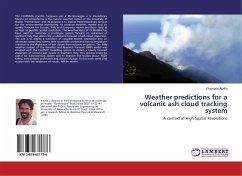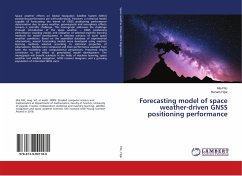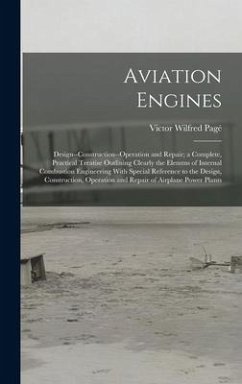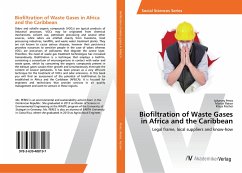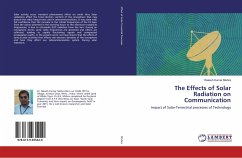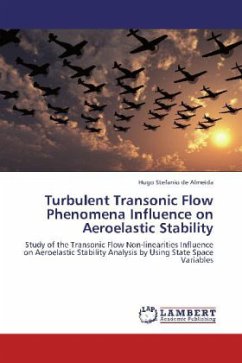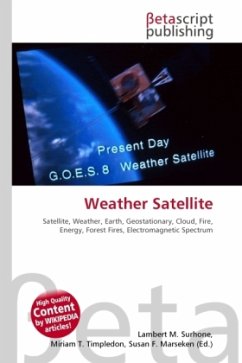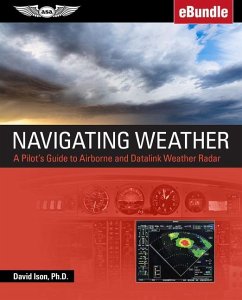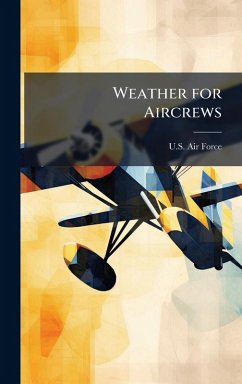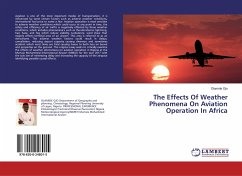
The Effects Of Weather Phenomena On Aviation Operation In Africa
Versandkostenfrei!
Versandfertig in 6-10 Tagen
27,99 €
inkl. MwSt.

PAYBACK Punkte
14 °P sammeln!
Aviation is one of the most important modes of transportation, it is influenced by some certain factors such as adverse weather conditions, international fuel price to name a few. Aviation operation is most sensitive to adverse weather conditions which could occur at any point in time, the safety and efficiency of air traffic is negatively affected by these weather conditions, which includes phenomena's such as thunderstorms; lightning, hail, haze, and fog which reduce visibility, turbulence, wind shear that majorly affects terminal area of an airport. This area is referred to as an Aerodrome....
Aviation is one of the most important modes of transportation, it is influenced by some certain factors such as adverse weather conditions, international fuel price to name a few. Aviation operation is most sensitive to adverse weather conditions which could occur at any point in time, the safety and efficiency of air traffic is negatively affected by these weather conditions, which includes phenomena's such as thunderstorms; lightning, hail, haze, and fog which reduce visibility, turbulence, wind shear that majorly affects terminal area of an airport. This area is referred to as an Aerodrome. The adverse weather factors could result in delays, cancellation, reducing airport capacity causing diversion and sometimes accident which most times are fatal causing havoc to both lives on board and properties on the ground. This original essay seeks to critically examine the effects of weather phenomena on aviation operation in Nigeria at the Murtala Mohammed International Airport (MMIA)for the year 2017 with the sole aim of minimizing delay and increasing the capacity of the airspace identifying possible causal effects.



